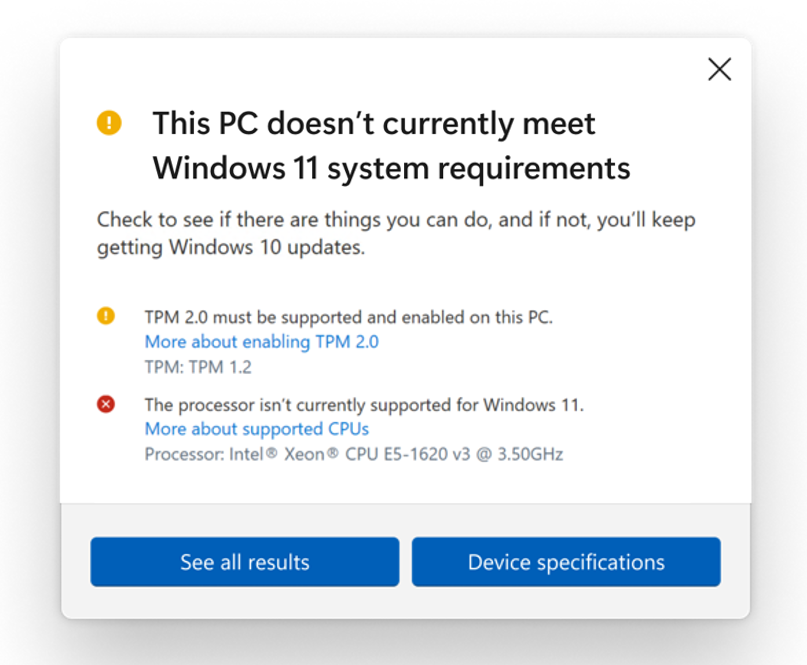
We suspect this could change in the coming months prior to Windows 11 launching, but we'll just have to watch this space to see if the supported specifications are updated. It goes without saying that this upgrade procedure feels like there are plenty of hoops to jump through, and right now millions of devices are supposedly unable to run the new Windows OS at all. It's actually likely you won't need to make any hardware changes to your device, so our advice is to hold off making any changes for now. The workaround for this particular issue requires going into the BIOS, but we've created a guide on how to walk you through that without breaking your device.Īfter the Microsoft Windows 11 keynote, TPM module prices shot up exponentially due to the sudden demand, with folk preparing to upgrade their systems ready for the new OS. You can also check for up gradation of Windows 10 to Windows 11. Tap to the app and a new window will be open to display the entire hardware capacity of your system. TPM has been a requirement in many devices since 2016, so it's likely you're laptop or PC already has one, though it might not be enabled. Type ‘PC Health Check’ app in the search box situated in the Windows 10 taskbar. Finally, if you have any questions, let us know in the comment section below.TPM is the shorter name for Trusted Platform Module and it's essentially a security device for your PC.

And to learn about the newest Smart App Control feature on Windows 11, follow our detailed explainer. We will be updating the PC Health Check app to identify the correct.

If you are looking for the best Windows 11 Settings to change, head to our linked article. Microsoft in its blog post said that the updated PC Health Check app was now available to all Windows Insider users. At the outset, it may appear as another bloatware for PC maintenance, but it brings much-needed features to boost performance without diving deep into Windows Settings. So that is everything about the new PC Manager tool from Microsoft. So to sum up, Microsoft PC Manager is an all-around tool for PC maintenance on Windows 10/ 11, and for less tech-savvy users, it can prove to be super helpful.īoost Performance on Windows 11/10 With Microsoft PC Manager Other than that, at most, it consumes 180 – 200MB RAM and runs seven processes in the background with minimal CPU usage. The app has no junkware, except for the recommendation to switch to Edge. Once it launches, you’ll see each major system check in its own box in the right pane. This will either open the PC Health Check app, or it’ll automatically download and install the app for you. I wouldn’t compare it with the likes of CCleaner as PC Manager is better. To see if PC Health Check is already installed on your system, select the Start menu and type PC Health Check.


 0 kommentar(er)
0 kommentar(er)
